"Besides, the platform can also carry out different ocean motion control experiments according to students' experimental needs and can display the motion track of the ocean motion model in the pool captured by the camera in real time." According to Li Bing, this means that HEU has created an " all-powerful " virtual experimental pool with 5G technology, that introduces new technology for the construction of traditional engineering courses.
Full chain innovation
self-made teaching instruments benefit more than 1000 students in 8 years
“The program of Ship Navigation Posture Control has 8 experimental class hours. Intuitive and vivid”, this is the classroom experience of Yang Yuxuan, a 2016 student from the College of Intelligence. In 2019, Yang Yuxuan used the virtual simulation experiment platform to learn the knowledge of anti-rolling control. According to the adjustment of parameters, the swing angle of the ship model in the laboratory changed. While wearing VR glasses, Yang Yuxuan seemed to stand on a real ship and feel the shaking of the ship. "The experiment class made me understand the importance of anti rolling control for ship experiment and aircraft design, as well as the specific application, and I also carry out the practical operation by myself." He said.
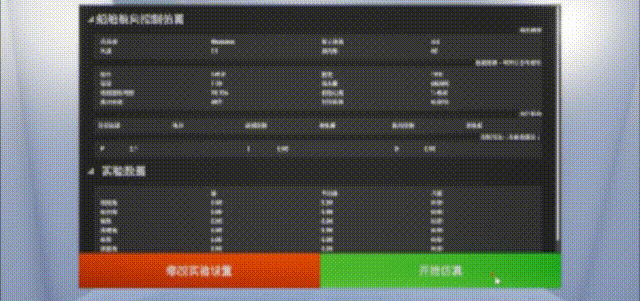
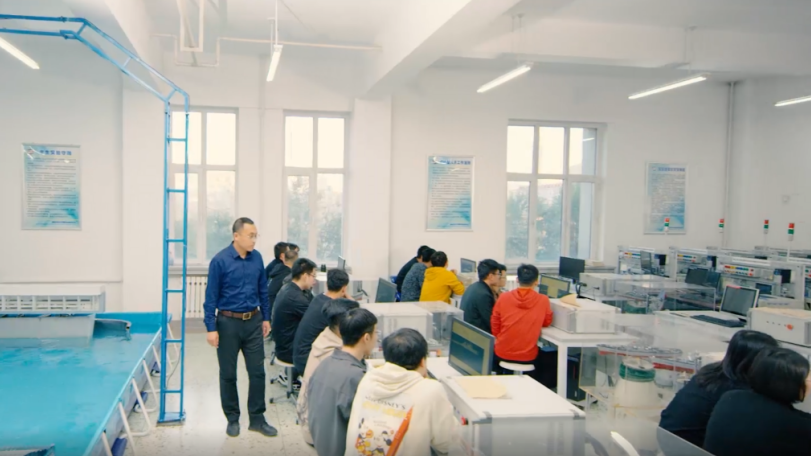
The program of Ship Navigation Posture Control is the core program of the College of Automation. As a theoretical course, with no experiment class, only the obscure professional theories and formulas in the textbooks cannot stimulate students' interest, and also make the theoretical study disconnected from the engineering practice. "Solving practical problems is the ultimate goal of students' learning." As the course leader, Li Bing proposed to open experimental class hours in 2014, and began to develop the equipments needed for the experiment. He began to try pure digital simulation experiments, designed and formed a virtual simulation model of ship navigation on the computer.
At the beginning of the rise of virtual reality technology, Li Bing keenly found that the application prospect of new technology was broad, and combined with his scientific research achievements, he developed experimental teaching instruments. In 2016, Li Bing led the students to build the first-generation prototype of the combination of virtual and real ocean motion simulation experiment teaching system.
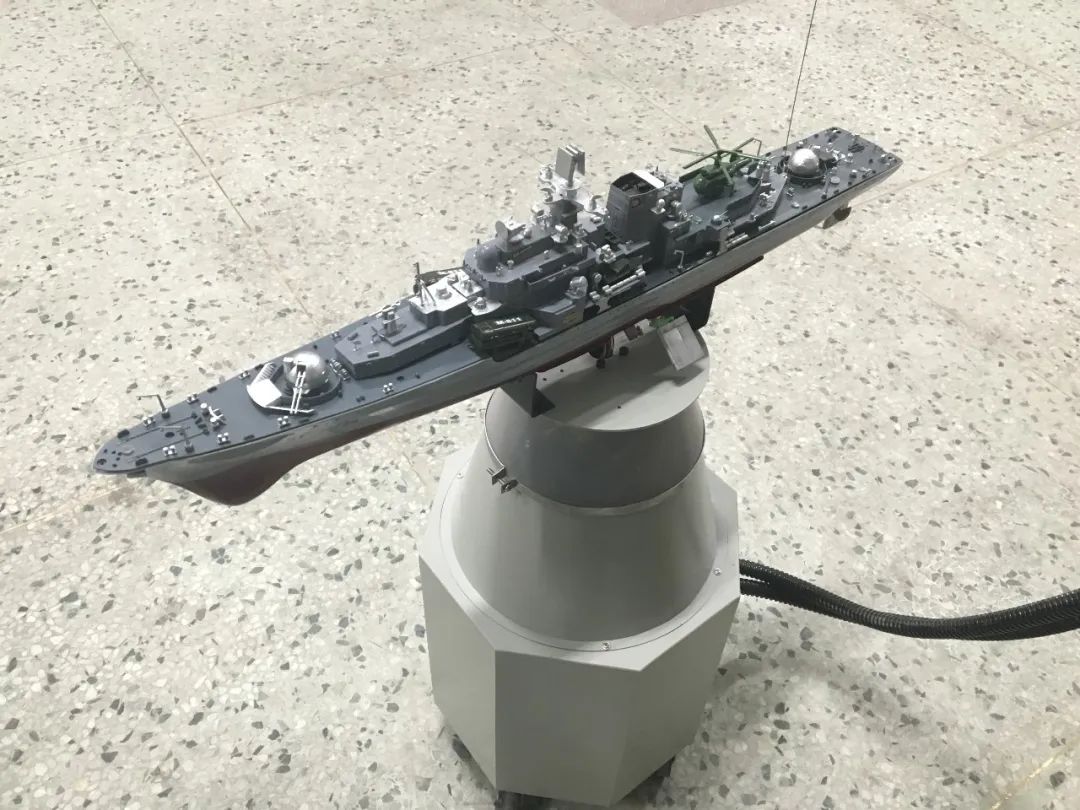
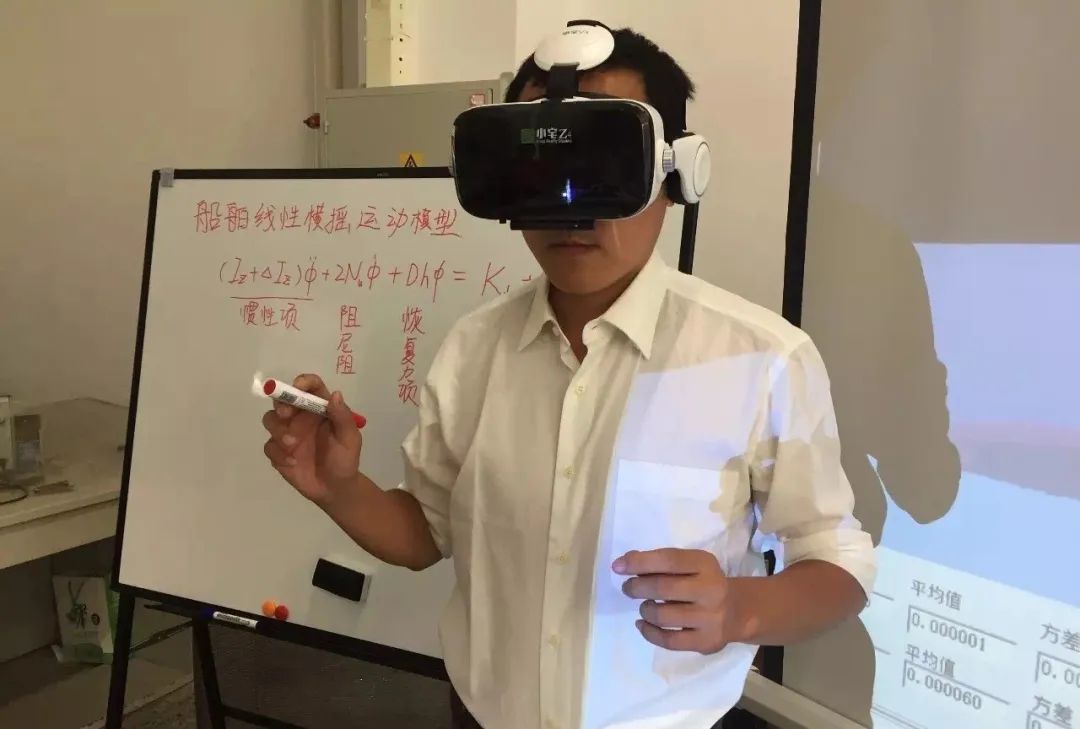
"The first-generation prototype is only the size of a water-cooler, and it can only simulate ship motion on land." Li Bing introduced. In order to let students pay attention to new technologies, he bought 100 VR glasses and distributed them as classroom rewards. "Only by being sensitive and curious about emerging technologies can we solve major problems at the forefront of technology." Li Bing said. The "Semi-physical Virtual Teaching System for Ship Navigation Posture Control" independently designed by the team won the first prize in the 4th “National University Self-made Experimental Teaching Instruments and Equipment” , which gave Li Bing greater confidence and he invested more energy in improving the teaching system.

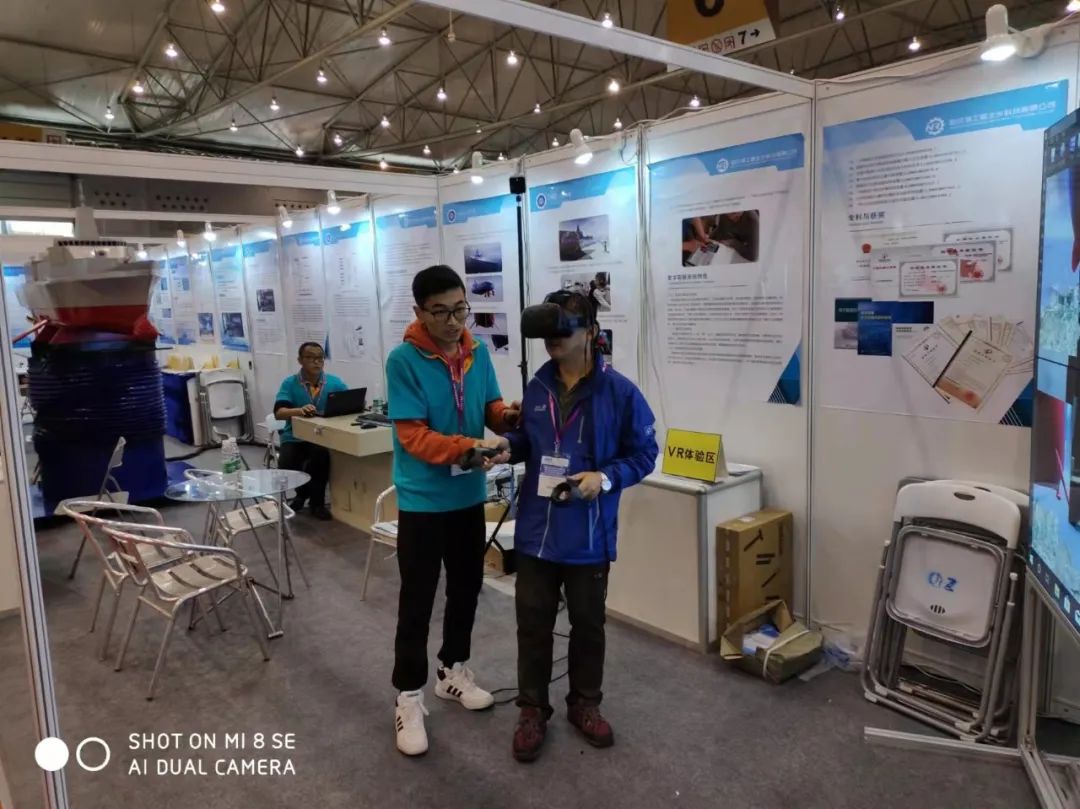
In 2018, the team completed the update of the teaching system, which consisted of the ship posture visual simulation system, the ship motion simulation system and the ship VR virtual reality system. The total weight of the ship's motion turntable is more than 400 kg. The ship model is more than 4 meters long and can bear 1 ton. More experiments can be completed on it. Li Bing's team has built a new website for the course and added the teaching link of virtual simulation. Students can immerse themselves in learning the ship motion control theory both online and offline and carry out experiments. The system won the first prize in “the national college self-made experimental teaching equipment."
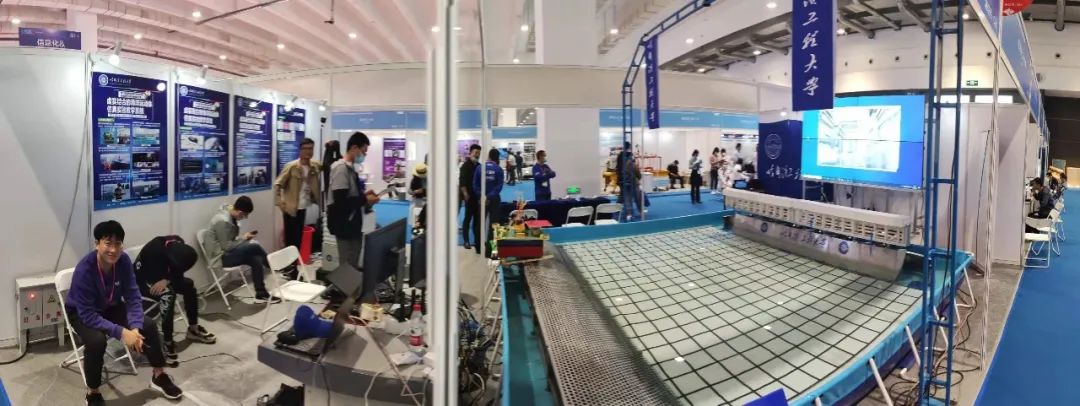
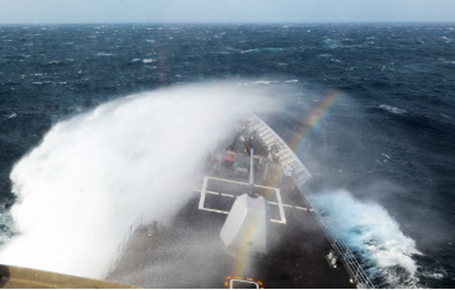
In 2021, meeting the needs of the course, the team added the experimental pool for ship dynamic positioning, wind and wave making system, and was equipped with 10 sets of physical prototypes and 30 high-performance virtual machines. Each prototype can be used by three students at the same time. The students carried out experiments in groups and cooperated with each other to complete the experiments. The team won the first prize of the “National College Self-made Experimental Teaching Instruments and Equipment” for the third time.
With the updated experimental equipment, Li Bing found that the original textbooks could not meet the actual needs of teaching, and Li Bing, Qi Zhigang, Liu Hongdan and other teachers began to rewrite the textbooks. According to the requirements of the new version of the syllabus and the needs of cultivating new engineering talent, Li Bing selected the latest and most representative ship posture control cases and illustrations to add to the textbook. Through the systemic augmented reality (AR) function, students can observe and manipulate the virtual ship model from all directions on their cellphones. After more than three years, the newly compiled Ship Motion Control was published in October 2021. In 2022, in order to adapt to online teaching, Li Bing's team has designed electronic textbooks, which students can download from the client and website.
After 8 years of exploration and practice, Li Bing and his team have completed the full chain of independent innovation of traditional professional core curriculum, teaching content, textbook construction, teaching links, resource allocation and teaching management, and upgraded the professional courses to "intelligence+" course.
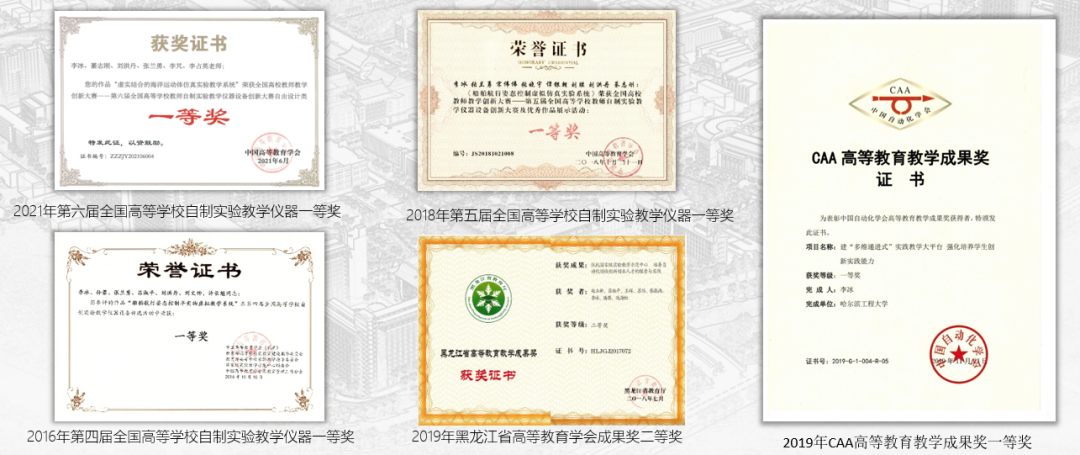
"We have used the 5G physical environment of HEU and the 5G new infrastructure technology to create an ultra-low delay virtual-reality combination simulation experiment system, which can support the remote sharing of experimental curriculum resources in classrooms, such as Future College, Union College, Qingdao Innovation and Development Base and Yantai Research Institute." Li Bing said. In 2021, the experimental system has been launched on the national experimental sharing platform. At present, 3000 people have completed experiments. In addition to HEU students, students from Dalian Maritime University, Shanghai Ocean University, Weihai Ocean College, etc. have completed experiments through this platform. Students can carry out experiments anytime and anywhere, breaking through the time and space constraints.
Scientific research nurtures education
Multi-directional crossing solves practical problems
Li Mingze, a 2019 doctoral student from the College of Intelligence, as a core member, participated in the research and development of the intelligent processing system of Germinated rice, which won the gold medal of the 7th China "Internet+" Undergraduate Innovation and Entrepreneurship Competition in 2021. Li Mingze said: "I have studied and developed the teaching system with teacher Li Bing since I entered the master's program in 2016. My practical ability has been improved, and I have accumulated experience in the competition, which can help me win the science and innovation award.
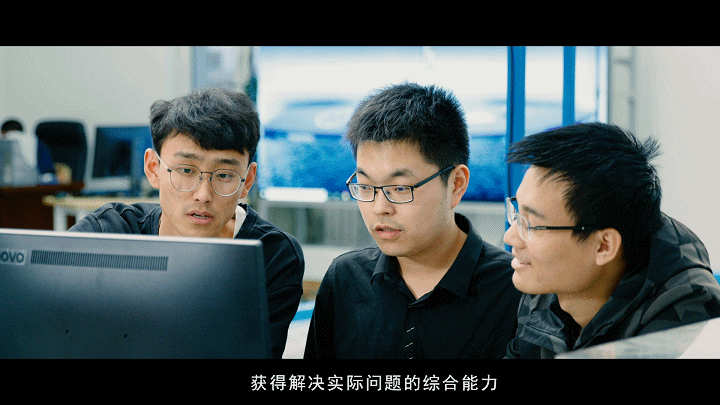
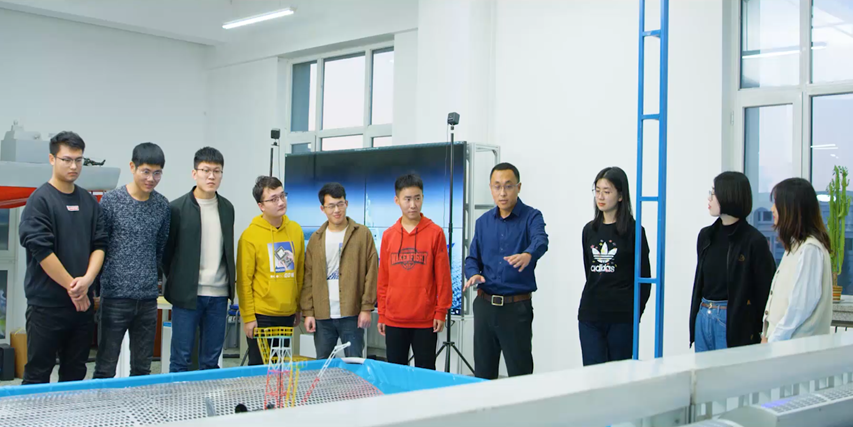
In order to improve the ability of students to solve practical engineering problems, Li Bing led the master and doctoral students to develop the teaching system together. The students are divided into ship group, vision group, and mechanical arm group. According to their own research directions and topics, the students make innovations in hardware control, software design, website maintenance, etc. In the form of regular group meetings, joint debugging, etc., students from different research directions can learn and master more knowledge. Under the guidance of Li Bing, the students successfully developed the ship dynamic positioning system for the experiment and built an online teaching website to make back-stage management of the experimental platform. "Many students in other research fields of the college also participate in the design of the teaching system, so that we can learn from each other." Yang Yuxuan said.
The virtual simulation experiment teaching platform for ship navigation posture control has experienced several upgrades. Every new function requires at least 2 to 3 months. "A virtual ship model contains more than 30000 surfaces, which need to be designed by special personnel." Li Mingze said. An experimental control cannot achieve the best effect, which requires joint debugging and optimization of ship model, simulation interface, algorithm, communication and other parts to solve the problem. In this process, the team members have become more and more tacit in their cooperation and become more proficient in mastering and applying professional knowledge.
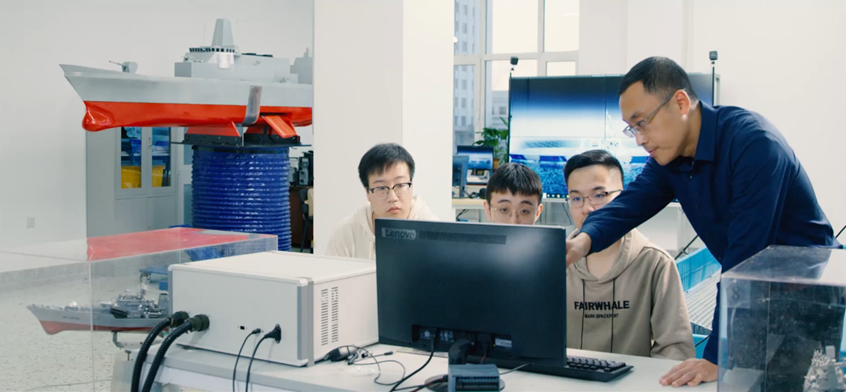
During the period when the teaching system was launched on the shared service platform of the national virtual simulation experiment teaching project, Li Bing led the students to spend more than half a year adjusting incompatible website algorithms, reprogramming and designing, and completely rebuilding in accordance with the rules and requirements of the national platform. After the platform is put into use, the students carry out daily maintenance every day.
In addition to classroom learning, students can make an appointment to use the experimental platform to carry out scientific research experiments. Yang Yuxuan used the platform to carry out the simulation experiment of underwater fishing robot control, which improved the design efficiency and made the robot control more accurate. "The virtual simulation platform can be used to set and adjust parameters in advance, and the physical debugging can be carried out under the premise of smaller error, which saves hardware loss, improves design accuracy, and accelerates our scientific research projects." Yang Yuxuan said.
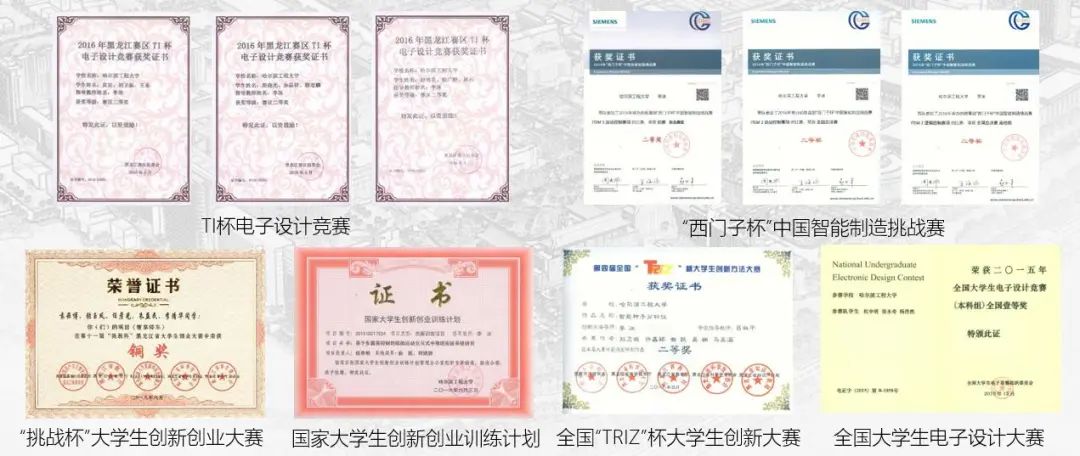
At present, Li Bing's teaching team is recording an English MOOC. In order to let more students of non-ship and sea majors know about the unique advantages of HEU, Li Bing newly opened the optional course of Ship Navigation Posture Control in the autumn semester of 2022, which aims at teaching the knowledge related to automatic control in the ship sea field for science popularization to all students. 60 students have taken this course. "I hope to give full play to the role of the virtual simulation teaching platform, so that more students can understand the sea I also hope to help our students grow into new engineering talents with features of ship and sea, engineering practice ability, and innovation awareness." Li Bing said.